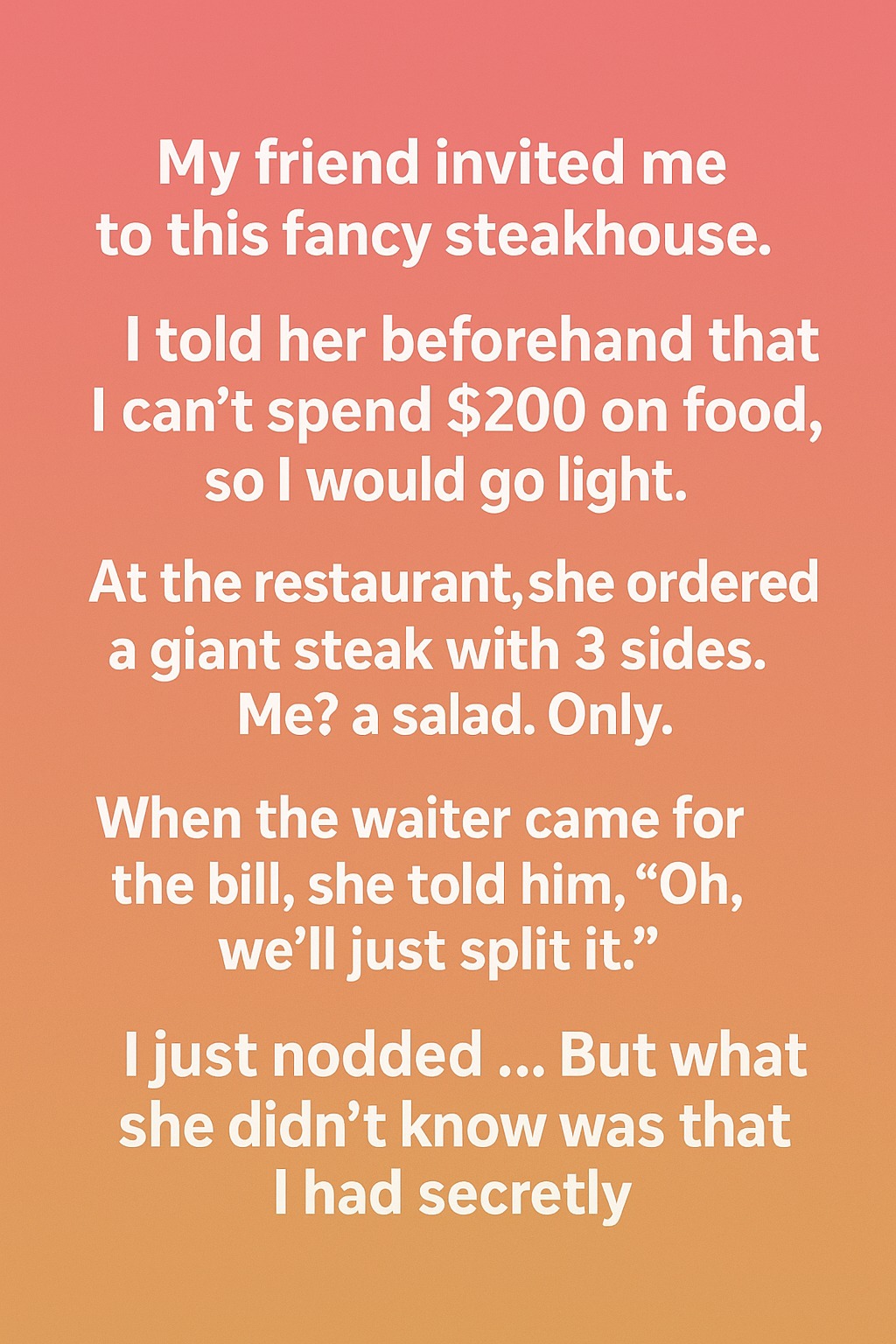My friend invited me to a fancy steakhouse, and I mentioned beforehand that I was on a tight budget. I wanted to make sure she knew I could still enjoy the evening without overspending, so I explained that I planned to order something small and simply enjoy the time together. I was really looking forward to catching up, laughing, and having a pleasant night out, rather than indulging in an extravagant meal.
When we arrived, the restaurant’s elegant décor and ambient lighting set the stage for what promised to be a lovely evening. She perused the menu with excitement and ultimately ordered a large entrée with multiple sides, clearly savoring the idea of a more elaborate dinner. I, on the other hand, stuck to my plan and ordered a simple salad — filling, but light, and comfortably within my budget. I felt content knowing I could enjoy the food without worrying about overspending.
As the meal progressed, conversation flowed naturally, ranging from work updates to funny anecdotes about mutual friends. I was genuinely enjoying the time together, appreciating the laughter and connection that a shared meal can bring. When the bill arrived, my friend confidently told the waiter, “We’ll split it evenly.” I smiled calmly, knowing I already had a solution in mind and feeling prepared rather than anxious.
Before the dinner, I had taken the small but important step of calling the restaurant to ask if it would be possible to pay for my meal separately, and they had agreed. So when the waiter returned with the check, he placed two separate checks on the table, just as I had arranged. My friend paused, clearly surprised and caught off guard, as she had not expected this outcome. I politely thanked the waiter and paid my portion without hesitation, feeling relieved that I could stick to my plan while avoiding any awkward tension.
For a moment, my friend looked a little stunned, unsure how to respond at first. Then she let out a soft laugh and said, “Wow, you really prepared.” I smiled and explained that in any friendship, comfort and boundaries — including financial ones — are important. It wasn’t about the money itself; it was about thoughtfulness, fairness, and respecting each other’s circumstances. She listened attentively and apologized for assuming we would split evenly, which I appreciated.
We left the restaurant still friends, but with a clearer understanding between us. The evening had reinforced the value of communication: by speaking up ahead of time, I avoided an uncomfortable situation and helped set expectations. My friend, in turn, realized that generosity isn’t about how much you spend, but about being considerate and thoughtful toward the other person’s circumstances.
Reflecting on the night, I realized that small acts of preparation — like calling the restaurant ahead — can make a big difference in social situations. Meanwhile, she seemed to take away a meaningful lesson as well: that kindness and understanding often mean more than a shared check or extravagant meal. The evening ended not just with full stomachs, but with mutual respect, appreciation, and a reminder that the true joy of sharing a meal lies in connection, thoughtfulness, and the simple consideration we show one another.
